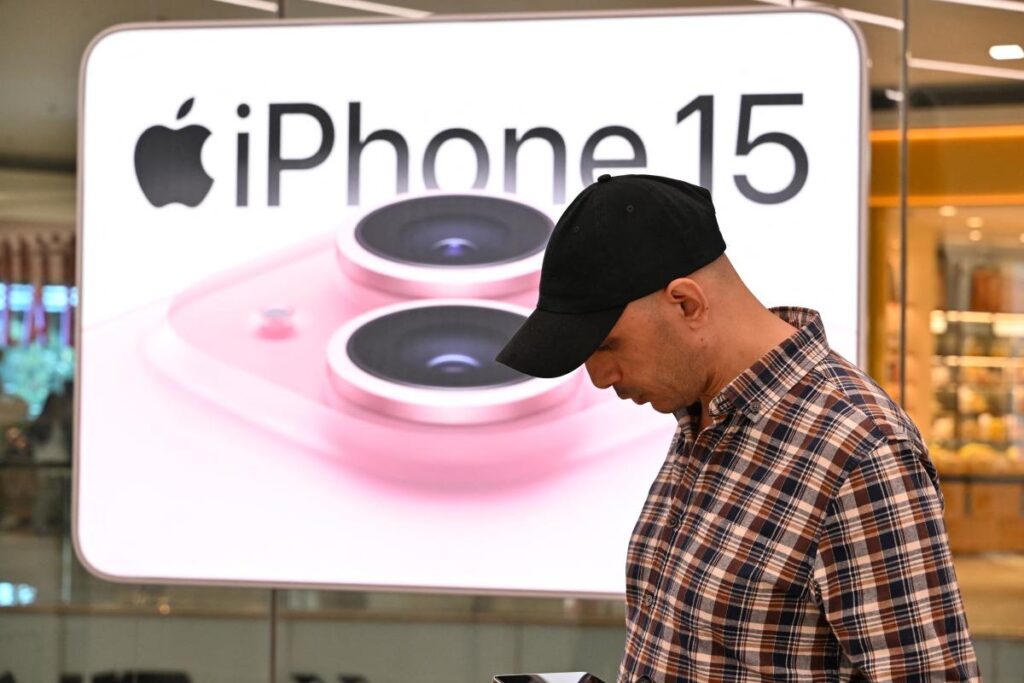Apple (AAPL) is scheduled to report second-quarter results after the bell on Thursday, as Wall Street braces for a possible sharp decline in iPhone sales from China. iPhone sales fell 19% in the quarter, according to Counterpoint Research, but rival Huawei continued to struggle after the U.S. tried to bring the company to its knees in 2019 by blocking access to American-made chips. Continued to regain footing.
The expected decline in iPhone shipments follows consecutive quarterly declines in sales in Greater China, one of Apple's most important sales regions. Second-quarter revenue is expected to decline 28% year over year.
Apple's stock price has fallen about 5% since the beginning of the year and has been essentially flat for the past 12 months. Meanwhile, the stock prices of Big Tech rivals like Microsoft and Google are up 25% and 37%, respectively, over last year.
Apple is expected to post earnings per share (EPS) of $1.50 and revenue of $90.3 billion this quarter, according to analyst estimates compiled by Bloomberg. This corresponds to a revenue decrease of 4.75% compared to the previous year.
Apple's iPhone sales for the quarter are expected to decline by about 10.8% to $45.75 billion, and iPad sales are expected to decline by 11%. Analysts also expect both Macs and wearables to decline 5% year over year.
“Expectations are pretty low at this point,” Dan Niles, founder of Niles Investment Management, told Yahoo Finance.
“Competition with China is not going away, there are delays in AI, and unfortunately China is paying a fairly high P/E of 25x for the exact same company whose March quarter earnings were three years ago. Naru,” he added.
However, there could be some bright spots for Apple this quarter. Services revenue is expected to increase 11% year over year to $23.28 billion. Analysts also expect gross profit margin to improve by 5% year-on-year to 46.59%.
Apple is also preparing for its Worldwide Developers Conference (WWDC) in June, where it will reportedly announce the latest versions of its iOS, macOS, watchOS, iPadOS, and visionOS operating systems. One of the biggest announcements at the show will be how Apple will integrate generative AI into its various products.
The company is a latecomer to generative AI, with rivals across Big Tech already rolling out their own products for consumer and enterprise customers. But that doesn't mean Apple was twiddling its thumbs. The company is busy acquiring AI companies and building its own large-scale language models that could enhance its AI efforts.
According to Bloomberg's Mark Garman, Apple is also considering working with the likes of OpenAI and Google to take its AI products to the highest level.
Generative AI is still a relatively niche product among consumers. Sure, Google and Samsung offer generative AI capabilities on their smartphones, and PC manufacturers are increasingly leaning toward so-called AI PCs, but applications are still less about innovative features that drive big sales. It mostly feels like a tech demo. Apple has a chance to change that.
But first we need to achieve profitability.
Email Daniel Howley at dhowley@yahoofinance.com. Follow him on Twitter @Daniel Howley.
Latest earnings reports and analysis, earnings whispers and expectations, corporate ears.Click here for Nings news.
Read the latest financial and business news from Yahoo FinanSe.apple


